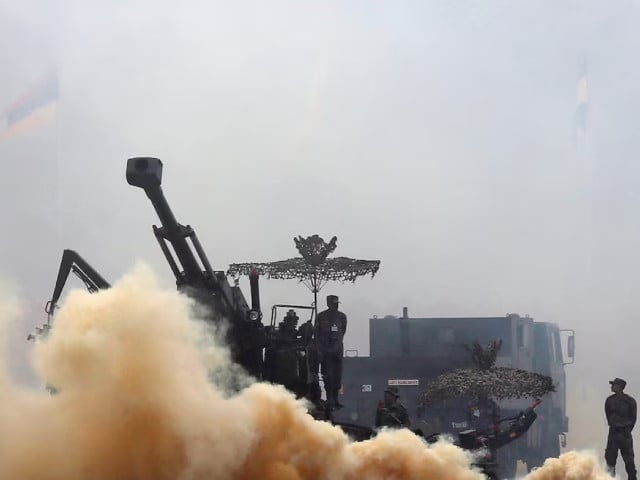Artillery shells manufactured in India have been diverted to Ukraine by European buyers, leading to protests from Russia. Despite Moscow’s objections, New Delhi has opted not to intervene, according to sources within Indian and European government and defense circles.
Reuters’ investigation, which includes an analysis of customs data, reveals that while India’s arms export regulations prohibit unauthorized transfers, European countries such as Italy and the Czech Republic have bought shells from India and sent them to Ukraine. This has been part of the broader European effort to support Kyiv in its defense against Russia’s invasion.
Although India itself has not directly supplied ammunition to Ukraine, the sale of shells to European nations, which then route them to Ukraine, has raised concerns. Russian Foreign Minister Sergei Lavrov expressed these concerns during a July meeting with Indian Foreign Minister S. Jaishankar. Despite this, India has taken no significant measures to curtail these exports, and officials have largely remained silent on the issue.
European companies, including Italy’s Meccanica per l’Elettronica e Servomeccanismi (MES), have been instrumental in the process. MES, a key buyer of Indian-made shells, repurposes them by adding explosives before delivering them to Ukraine.
The conflict in Ukraine has provided India, the world’s largest arms importer, with an opportunity to enhance its defense export industry. From 2018 to 2023, India exported over $3 billion in arms, with defense exports surpassing $2.5 billion in the last fiscal year alone. This represents a significant increase in India’s global arms trade, with countries like Italy, the Czech Republic, Spain, and Slovenia being major buyers.
India aims to increase its arms exports to $6 billion by 2029, positioning itself strategically between its longstanding relationship with Russia and its growing defense ties with Western nations. This evolving strategy allows India to navigate the geopolitical landscape while continuing to develop its defense industry, even amid diplomatic pressure from Moscow.



